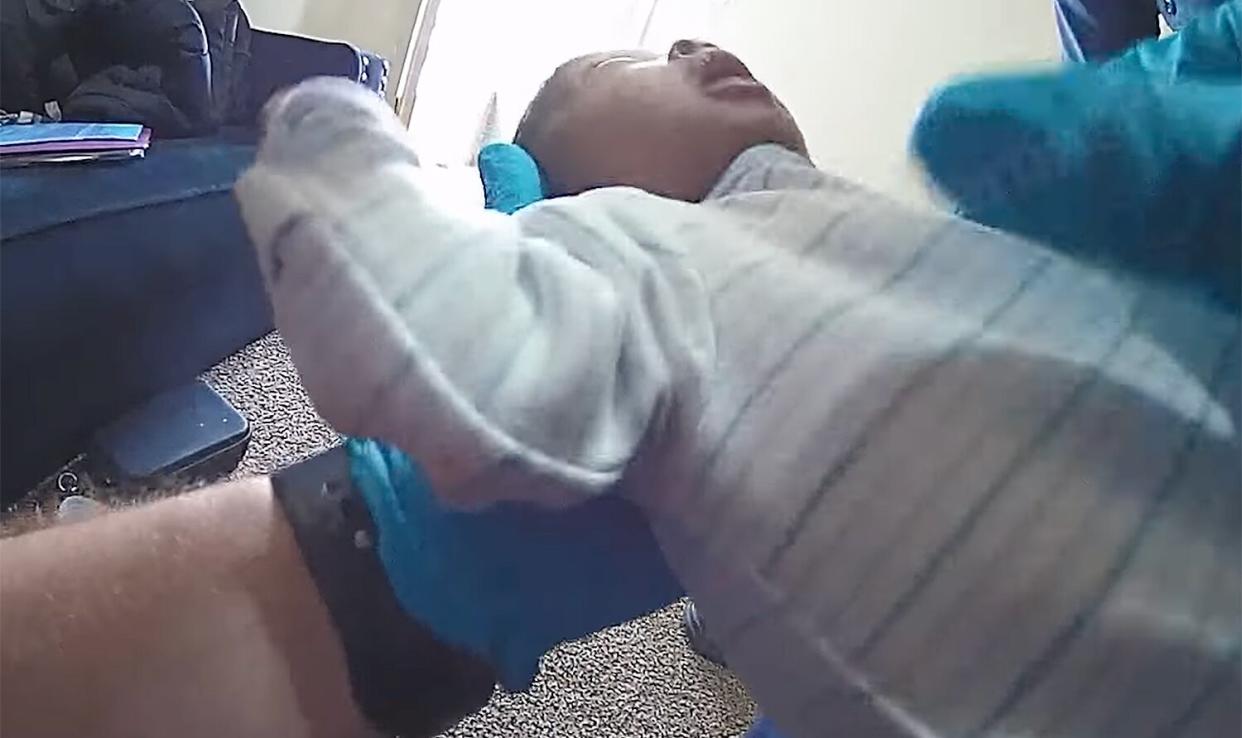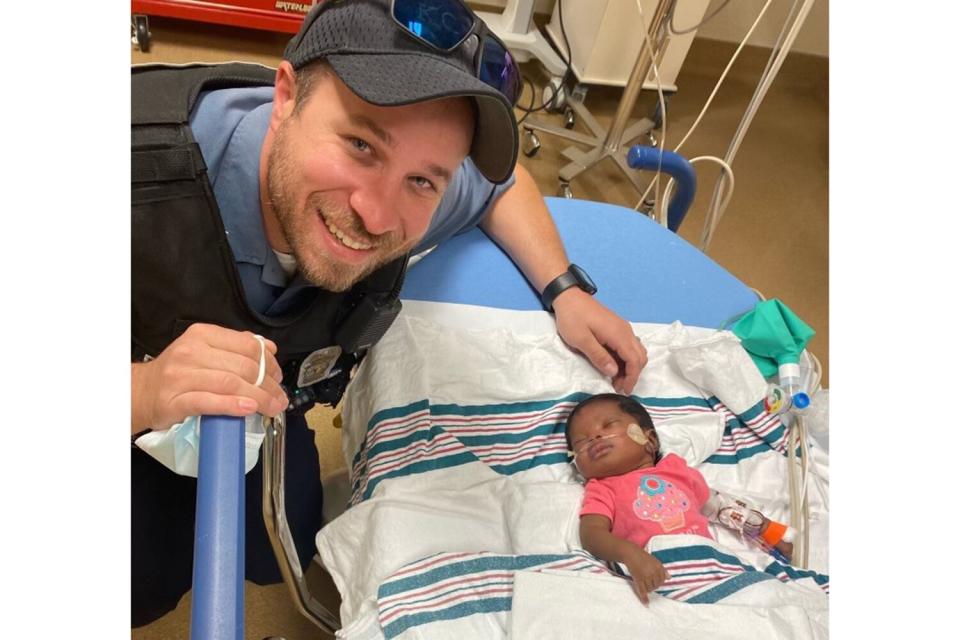Kansas City Officers Save Month-Old Baby with RSV Who Stopped Breathing: 'a Scary Moment'

Kansas City Missouri Police Department/Facebook
Two Kansas City police officers are earning national attention after saving a month-old baby's life when she stopped breathing as a result of respiratory syncytial virus (RSV).
After Tajanea Allen's infant daughter Kamiyah stopped breathing, officers Richard DuChaine and Charles Owen came to the rescue to perform CPR — and ended up saving the baby's life.
"The baby was so small, she looked like a doll," Owen told TODAY.
Police bodycam footage captured the moment Kansas City police officers saved an infant's life. Two cops responded to a dire emergency as an infant had stopped breathing due to RSV. pic.twitter.com/ZRLWcycbxY
— Inside Edition (@InsideEdition) November 9, 2022
Video from the life-saving moment, recorded on a body camera, shows what DuChaine called a scary moment — when both officers performed CPR on the newborn as she didn't respond for 30 seconds. The two sprinted into the home and quickly got a hold of the baby, who momentarily appeared lifeless as they tried to get her breathing again. Kamiyah eventually regained consciousness.
"You hear about RSV, but when you actually see it in person, it's very scary," Owen said.
Kamiyah stayed at a local hospital for a week recovering from the respiratory virus, TODAY shares, which the Centers for Disease Control and Prevention reports as causing cold symptoms. But RSV can be serious for infants, as the Department of Health and Human Services states that over 20 states report 80% or more of their pediatric hospital beds taken up.
And Kamiyah's case hit close to home for DuChaine, as she was born 34 weeks premature, and he too had a daughter who was born premature. "I've been in your shoes, I know exactly what it feels like," DuChaine said, per Fox 4. "And that's the biggest thing, is just being so close and I could actually relate to this family that I serve."
Allen was thankful for the officers' work, after they arrived to her home in about 30 seconds to help rescue the baby.
"That's my hero. He saved my daughter," Allen said. "I will do anything for that man, he saved my daughter and I thank him for that."

Kansas City Missouri Police Department/Facebook
RELATED: Amy Schumer's 3-Year-Old Son Was Hospitalized with RSV — Here's What to Know About the Illness
As some states are seeing an unusual increase in RSV cases, the virus is said to cause bronchiolitis and pneumonia in kids under 1 years old. The CDC advises young children, adults over age 65 or those with chronic illnesses to keep an eye open for the virus, which typically is spread by coughing and sneezing.
"The reason why it's spreading now is unclear, but likely relates to the reason we didn't see much RSV and influenza in the winter: masking, distancing and good handwashing," Dr. Elizabeth Murray, a pediatrician specializing in Pediatric Emergency Medicine and Child Health Advocacy and a member of PEOPLE's Health Squad, previously said. "As those precautions start to go away, we can expect germs to return."
Never miss a story — sign up for PEOPLE's free daily newsletter to stay up-to-date on the best of what PEOPLE has to offer, from juicy celebrity news to compelling human interest stories.
In young children, it often starts with a runny nose and a possible fever, then gets worse after a few days and causes bronchiolitis. This can lead to wheezing and poor breathing in children, Murray shared. The best way to fight it is through rest and fluids, with parents urged to monitor their child's breathing.
"The concern comes when the child's oxygen level drops or they are breathing too hard to eat or drink normally," she said. "But the good news for parents is that the concerning symptoms are not subtle. If your child cannot eat or drink normally or is having trouble breathing, they need to be evaluated by a medical professional."
Pfizer announced last week that an RSV vaccine can prevent severe illness in infants, and could be available as early as next year upon FDA approval. The vaccine, administered to pregnant women as a single dose in the late second or third trimester, is said to be 80% efficient at preventing severe RSV in the first three months of a baby's life. It is also about 70% efficient at preventing it in the first six months of a baby's life.

